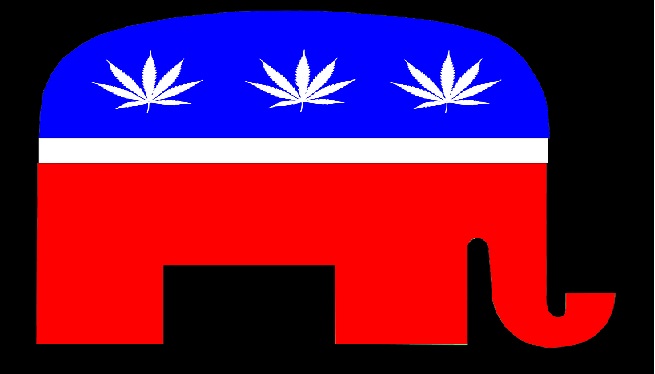NATIONAL HARBOR, MD — (CNN) The crowd at the annual Conservative Political Action Conference in Washington erupted in applause Friday when Matt Schlapp, the organizer of the event, congratulated top White House staff on President Donald Trump’s decision to roll back protections for transgender students in public schools.
“He’s even leaving bathrooms alone,” Schlapp told attendees. “That’s kind of a nice, refreshing thing for a lot of people as well.”
Last May, after North Carolina passed a controversial bill that requires transgender people in government buildings to use bathrooms corresponding to the sex identified on their birth certificates, the Obama administration issued guidance requiring public schools to allow transgender students to use the bathroom that corresponds to their gender identity. The guidance—currently at the center of a pending Supreme Court case—was withdrawn by the Trump administration on Feb 22.
“They happen to think it’s a state issue,” White House chief of staff Reince Priebus said.
But while Republicans generally support local control and the rights of states to pass their own laws, not all states’ rights are created equal in the eyes of the new White House. Case in point: state marijuana laws.
In the White House briefing room Thursday, press secretary Sean Spicer told reporters federal law enforcement authorities would be taking a new view of state laws that have legalized recreational marijuana in recent years.
“I do believe you will see greater enforcement of it,” Spicer said of the federal laws that classify marijuana as a controlled substance.
Both medical and recreational marijuana legalization efforts run afoul of this federal classification, although Spicer did not say medical marijuana laws would be targeted. He sought to tie recreational marijuana with the opioid epidemic.
[van id=”politics/2017/02/23/sean-spicer-white-house-briefing-marijuana-sot.cnn”]
“When you see something like the opioid addiction crisis blossoming in so many states around this country, the last thing we should be doing is encouraging people,” Spicer said. “There is still a federal law that we need to abide by when it comes to recreational marijuana and drugs of that nature.”
The Obama administration had fought states on the bathroom issue, but let states experiment with marijuana legalization even though federal law supersedes state law under the supremacy clause of the Constitution.
Attorney General Jeff Sessions hit pause on a Justice Department challenge against Texas and several other states that had sued over the Obama administration’s guidance on bathrooms.
It is not clear how forcefully Sessions will act against states on marijuana.
The White House’s potential reversal of the Obama-era stance on state laws legalizing marijuana puts the federal government at odds with public opinion.
An October Gallup poll suggested 60% of Americans supported legal marijuana, up from just 35% in 2005.
The story on transgender bathroom laws is more complicated. The North Carolina law led to public outcry by LGBT activists and a boycott of the state by sports leagues.
But just a smidge more than half of adult Americans support allowing transgender people to use the bathrooms of their choice, according to a Pew survey, although just 30% of Republicans held that view.
Arguments over states’ rights could play out over the course of the Trump administration in a variety of ways. If the Trump administration rolls back EPA regulations, it could raise conflict with states like California, which has established robust environmental protections.
The Obama administration squared off with Texas over the Voting Rights Act and with other states on voter registration. Trump’s administration is not likely to do that. And when it comes to Obamacare, the ability of states to have their own insurance rules is likely to play a role in the Republican effort to repeal the health care law, as is the way states spend federal Medicaid money.
And then look for a role reversal on states’ rights issues the next time there’s a Democrat in the White House.
The-CNN-Wire ™ & © 2017 Cable News Network, Inc., a Time Warner Company. All rights reserved. (PHOTO: CC0 Public Domain via Pixabay)





















